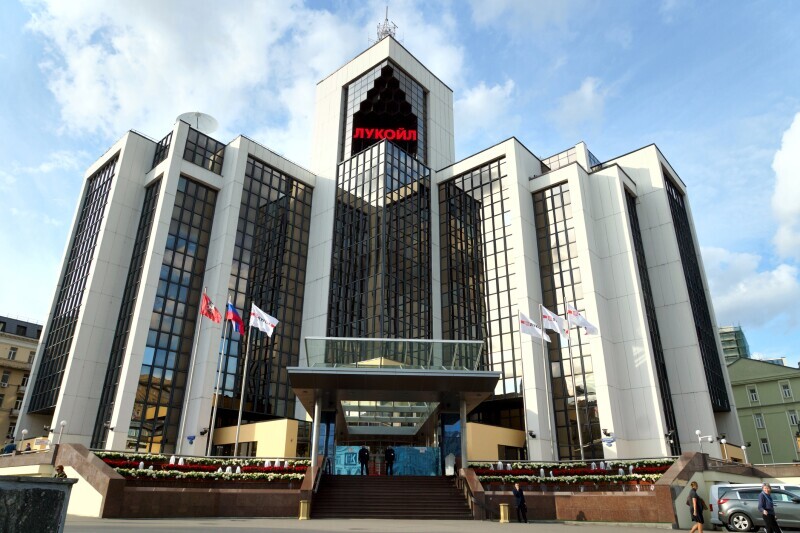Lukoil International has declared force majeure on its Iraqi West Qurna-2 oil field after Swiss energy trader Gunvor Group’s offer to buy the Russian major’s newly sanctioned assets collapsed following the US Treasury’s refusal to license the deal, citing the purchaser’s alleged Kremlin ties.
The US and UK sanctioned Lukoil International and Russia’s largest oil major, Rosneft, in October to increase pressure on Russia over its war with Ukraine.
Lukoil holds a 75% stake in West Qurna-2, one of the world’s largest oil fields, producing around 480,000 B/D, which is about 8–9% of Iraq's total daily oil output, according to Lukoil’s website.
Reuters reported that Baghdad suspended oil and cash payments to Lukoil under contracts to develop West Qurna-2 following the announcement of new sanctions. Iraq’s state-owned oil marketing company, SOMO, also canceled shipments of three batches of Lukoil-produced crude oil.
Lukoil responded with a letter to Iraq’s Oil Ministry in early November declaring force majeure and saying that, if the situation did not resolve within 6 months, Lukoil would exit the project, Reuters said, quoting a senior Iraqi official as its source.
Lukoil’s Upstream Presence
Lukoil controls 75% of West Qurna-2 and holds an 80% interest in the nearby Block 10 field. In the Western Hemisphere, its top holding is a 50% operator interest in Area 4 offshore Mexico, which includes the Ichalkil and Pokoch oil fields.
The Russian independent’s other stakes in upstream foreign assets include:
- Africa: 50% operated stake in the West Esh El Mallaha (WEEM) and WEEM Extension oil fields with Egypt's Tharwa Petroleum and a 24% stake in the Meleiha concession with Eni as the operating partner. Besides Egypt, Lukoil holds offshore exploration blocks in Cameroon, Nigeria, and Ghana and a 25% stake in the Marine XII block offshore Congo, which is operated by Eni and includes LNG production.
- UAE: 10% stake in the ADNOC-operated Ghasha offshore gas and condensate project.
- Kazakhstan: 13.5% stake in the Karachaganak gas and condensate field; owns 5% of Tengizchevroil, the consortium operating the Tengiz field; and a 12.5% interest in the Caspian Pipeline Consortium, which exports Tengiz oil to Russia’s Novorossiysk terminal on the Black Sea.
- Azerbaijan: 20% stake in the BP-operated Shah Deniz gas field, which exports gas to Europe.
- Uzbekistan: Operates the South-West Gissar gas field and holds a 90% interest in the Kandym fields project near the Turkmenistan border.
How Close Is Too Close?
With the rejection of Gunvor’s bid, Lukoil may be forced to sell its assets at deep discounts to comply with US demands that companies sever business ties with the Russian major by 21 November.
Russian oligarch Gennady Timchenko co-founded Gunvor but later sold his shares to co-founder and CEO Torbjörn Törnqvist, a Swedish oil trader who then became the majority owner. The sale took place as Timchenko was being targeted with US sanctions after Russia’s annexation of Crimea in 2014.
At the time, the US alleged a connection between Gunvor and Russian President Vladimir Putin, an accusation the company has consistently denied.
Struggle Over Lukoil’s European Refineries Intensifies
An intense struggle is unfolding over Lukoil’s downstream assets in Europe as countries seek US licenses to keep the company’s oil refineries operating while long-term solutions can be found.
Bulgaria, for example, is seeking to take control, or at least continue operation, of the 190,000-B/D Lukoil Neftohim Burgas refinery, the largest in the Balkans.
Romania’s Economic Adviser Radu Burnete has signaled interest in acquiring Lukoil’s Petrotel oil refinery, while Moldova’s Energy Minister Dorin Junghietu told Reuters that his country has requested a temporary exemption allowing Lukoil to operate beyond 21 November because the company supplies the local market and owns the airport's only fuel storage, supply, and aircraft refueling facility.
Also affected is Lukoil’s 45% stake in the Zeeland Refinery in the Netherlands, where TotalEnergies holds the remaining 55%.


